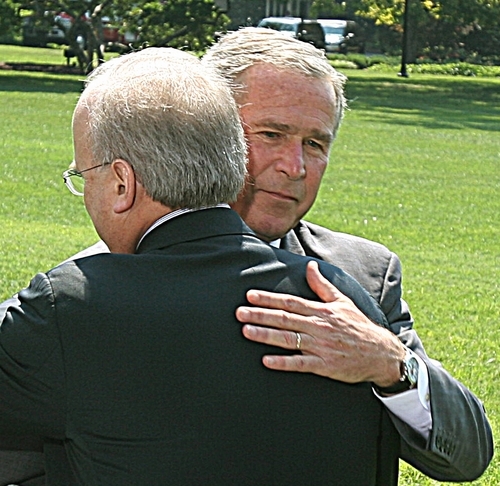
Watching the Bush-Rove conference, it was impossible not to feel that this was the end of an era. The president admitted he soon be gone too; telling Rove “I’ll be on the road behind you here in a little bit.” While both Rove and Bush were clearly moved by the moment.
Rove’s departure signals that the Bush administration is done on domestic policy. The debate over whether he did Bush more harm than good will rumble onto into the history books. Indeed, what appeared like Rove’s greatest triumph—taking back the Senate in 2002 and increasing the number of Republican seats in the House—actually sowed the seeds for many of the problems that Bush is now reaping.
The display of political muscle in that campaign was as brutal as it was effective. Rove maximised the political pull of Bush with his stratospheric, post 9/11 ratings. It didn’t matter whether a Democrat had backed all of Bush’s key initiatives or not, if Rove saw the chance of a pick-up the president was sent to rally the Republican faithful. Bush felt the flip-side of this in his second term when he needed bi-partisan support on social security reform, as his 2002 campaign had not only wiped out many of the Democrats who would have been most likely to have cooperated with him but also put other Democrats off working with him as there appeared to be no upside to it.
Amidst all the talk of how Rove failed in his bid to realign US politics, it is worth remembering that it was Congressional Republicans who derailed Bush and Rove’s plans for comprehensive immigration reform. On that issue certainly, Republicans will regret not taking Rove’s advice. Alienating the country’s fastest growing voting group is a bigger mistake than any that Karl Rove ever made.






Comments